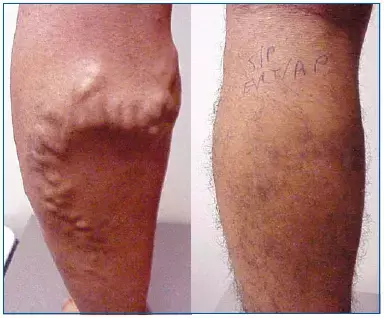- Home
- Medical news & Guidelines
- Anesthesiology
- Cardiology and CTVS
- Critical Care
- Dentistry
- Dermatology
- Diabetes and Endocrinology
- ENT
- Gastroenterology
- Medicine
- Nephrology
- Neurology
- Obstretics-Gynaecology
- Oncology
- Ophthalmology
- Orthopaedics
- Pediatrics-Neonatology
- Psychiatry
- Pulmonology
- Radiology
- Surgery
- Urology
- Laboratory Medicine
- Diet
- Nursing
- Paramedical
- Physiotherapy
- Health news
- Fact Check
- Bone Health Fact Check
- Brain Health Fact Check
- Cancer Related Fact Check
- Child Care Fact Check
- Dental and oral health fact check
- Diabetes and metabolic health fact check
- Diet and Nutrition Fact Check
- Eye and ENT Care Fact Check
- Fitness fact check
- Gut health fact check
- Heart health fact check
- Kidney health fact check
- Medical education fact check
- Men's health fact check
- Respiratory fact check
- Skin and hair care fact check
- Vaccine and Immunization fact check
- Women's health fact check
- AYUSH
- State News
- Andaman and Nicobar Islands
- Andhra Pradesh
- Arunachal Pradesh
- Assam
- Bihar
- Chandigarh
- Chattisgarh
- Dadra and Nagar Haveli
- Daman and Diu
- Delhi
- Goa
- Gujarat
- Haryana
- Himachal Pradesh
- Jammu & Kashmir
- Jharkhand
- Karnataka
- Kerala
- Ladakh
- Lakshadweep
- Madhya Pradesh
- Maharashtra
- Manipur
- Meghalaya
- Mizoram
- Nagaland
- Odisha
- Puducherry
- Punjab
- Rajasthan
- Sikkim
- Tamil Nadu
- Telangana
- Tripura
- Uttar Pradesh
- Uttrakhand
- West Bengal
- Medical Education
- Industry
High ligation with endovenous laser therapy for varicosis of great saphenous vein found safe in diabetes: Study

High ligation with endovenous laser therapy for varicosis of great saphenous vein found safe in diabetes patients, suggests a new study published in the journal Medicine.
A study was done to analyze the effects of high ligation plus endovenous laser therapy on intraoperative blood loss, postoperative visual analogue scale (VAS) score, and complications in patients with varicosis of great saphenous vein and type 2 diabetes. About 61 patients with varicosis of great saphenous vein and type 2 diabetes treated at our hospital were included. About 32 patients (37 affected limbs) receiving conventional surgery were included in control group, while 29 patients (34 affected limbs) receiving high ligation plus endovenous laser therapy were included in study group. The intraoperative blood loss, operation time, length of postoperative hospital stay, postoperative VAS scores, blood glucose levels, Venous Clinical Severity Score (VCSS), and incidence of complications were compared between the two groups. Compared with the control group, there were less intraoperative blood loss (P < .05), shorter operation time (P < .05), and shorter length of postoperative hospital stay in the study group (P < .05). Besides, there was also lower VAS scores at different time points after surgery in the study group than in the control group (P < .05). Blood glucose levels were decreased in both groups after surgery (P < .05). Moreover, VCSS was decreased in either group at 3 months after surgery (P < .05). Blood glucose levels of patients in the study group were lower than those of the control group after surgery (P < .05). The VCSS was also lower in the study group at 3 months after surgery than in the control group (P < .05). High ligation with endovenous laser therapy for varicosis of great saphenous vein in patients with type 2 diabetes was safe and feasible.
Reference:
Yang, Zheng, et al. "Effects of High Ligation Plus Endovenous Laser Therapy in Patients With Varicosis of Great Saphenous Vein and Type 2 Diabetes." Medicine, vol. 103, no. 11, 2024, pp. E37508.
Keywords:
High ligation, endovenous, laser, therapy, varicosis, great saphenous vein, diabetes, Yang, Zheng, Medicine (Baltimore)
Dr. Shravani Dali has completed her BDS from Pravara institute of medical sciences, loni. Following which she extensively worked in the healthcare sector for 2+ years. She has been actively involved in writing blogs in field of health and wellness. Currently she is pursuing her Masters of public health-health administration from Tata institute of social sciences. She can be contacted at editorial@medicaldialogues.in.
Dr Kamal Kant Kohli-MBBS, DTCD- a chest specialist with more than 30 years of practice and a flair for writing clinical articles, Dr Kamal Kant Kohli joined Medical Dialogues as a Chief Editor of Medical News. Besides writing articles, as an editor, he proofreads and verifies all the medical content published on Medical Dialogues including those coming from journals, studies,medical conferences,guidelines etc. Email: drkohli@medicaldialogues.in. Contact no. 011-43720751


